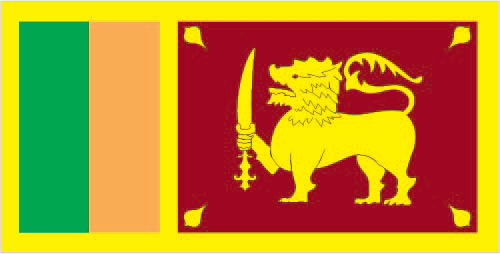
Source: World Bank
Meeting and Greeting
Sri Lankan business etiquette can be rather formal. Always remember that as a guest you will be given some leeway in terms of appreciating all the cultural nuances, but it is still best to try and adhere to some of the local customs.
Shaking hands is the most common form of greeting.
Handshakes are firm.
Greetings are given upon meeting and leaving.
Men may shake hands with other men and women may shake hands with other women.
Many Sri Lankan women may not want to shake hands with men. Wait for a woman to extend her hand.
As with most hierarchical cultures, Sri Lankans use titles.
If someone does not have a professional title, use the honorific title "Sir" or "Madam".
Titles are used with the person's name or the surname.
Wait to be invited before using someone's first name.
Business Card Etiquette
Business cards are usually exchanged after an initial handshake and greeting.
Titles and qualifications are important so be sure to add them to your card.
Having one side of your business card translated into Sinhala or Tamil is a nice touch but not crucial.
Always present your business card with two hands.
Treat people's business cards with respect - so keep don't put them into pockets, draw on them or use them in any manner that may be disrespectful.
Communication
Maintaining face is important for all communication.
Do not put people in awkward positions or under pressure. Never openly criticise people.
Sri Lankans are very non-confrontational in their communication style and it is important to try and read between the lines. They may say one thing but mean another and it is up to the listener to work out the message.
Watch for long pauses, avoidance of eye contact or blatant tactics of evasion.
Business Meetings
As relationships are so important for business it is always wise to invest time in relationship-building conversations at the start of any meetings.
The Sri Lankans will want to feel at ease with you and at least have a small bit of background about you before they will feel comfortable doing business or discussing business with you.
In fact a first meeting with a company should be approached as purely a relationship building exercise.
Prior to a meeting it may be worth while sending some background information on your company, the attendees and an agenda for the meeting.
Meetings may be interrupted by other business but this should not be interpreted as rude in any way.
Initial meetings will usually take place with middle ranking personnel who gather information to present to the decision maker. Getting to the decision maker through them is based on establishing good rapport and having a solid proposal.
Remember only the top level person at a company will usually make decisions so be patient and do your best to meet the person face-to-face.